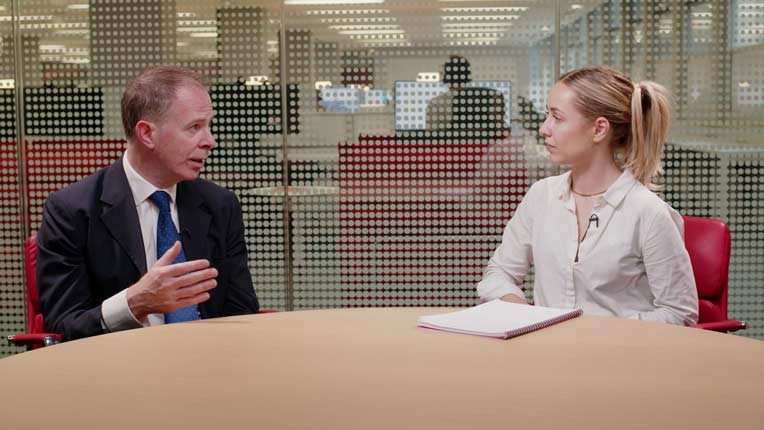Emma Wall: Hello and welcome to the Morningstar Series, Ask the Expert. I am Emma Wall and I am here with today with Morningstar's Daniel Needham.
Daniel Needham: Hi, Emma.
Wall: Hi, Daniel. So we had the Morningstar Investment Conference last week and you gave a really interesting talk about risk, perceptions of risk, realities of risk, and I think one of the things we've seen over the last couple of year since markets have rallied but with added volatility, is that people confuse risk with volatility. Why is that?
Needham: I think that the idea of volatility being risk relates back to this idea of, what drives prices in the markets and so there was a view in the Sixties that – well actually earlier than that, but primarily in the 60s that the prices were random. And so, and therefore if something is random and it follows a certain type of distribution which in this case is normal distribution, you can assume that the relationship between losses and volatility or standard deviation are quite strong, so it’s a statistical framework.
So due to what was academic theory and efficient market theory, you ended up with this kind of shorthand, which was that volatility equals risk. And then because of the academics like to do lots of mathematics and they like elegant mathematics, and you need a risk measure in your asset pricing models, it became almost academic shorthand.
So volatility is viewed as risk, but I don't think that is actually a very good measure of risk. I don't think it's a risk that end investors worry about. I think it's a risk that people who are managing money should worry about.
Risk is losing money and it’s losing money that you can't make back, and it’s money that is in purchasing power units. Not in today's dollars, but not in the nominal dollars, but in the real dollars; I want to be able to buy the same number of cans of Coke in 10 years as I can now, so inflation-adjusted. So that's how we think about risk.
Wall: And you are not the only person to have highlighted this at the conference. Mark Mobius, emerging markets guru said, the single biggest risk at the moment is actually fear of volatility, is that you know – you got to be in it to win it, and if market volatility puts investors off, then of course they can't make any gains. So with that in mind, with the idea that volatility is not risk, risk is real capital loss, what does that mean for the investor?
Needham: Often taking a more lumpy return path, but for higher return is a much better way to invest than aiming for sort of no volatility at all which, obviously you can invest in cash if you want low volatility, but cash might not be as safe as some people expect either.
Wall: That was one of the things that you did say at the conference is, based on the fact that, what risk is, is capital loss, it's having less money tomorrow than you do today. Cash actually is a pretty risky asset because with such low returns being offered for fund deposits, with inflation on top of that – we’ve had very low inflation figures today, but that is expected to sort of even itself out back up to around 2% – cash is risky.
Needham: I think, for certain investors, nominal assets like cash and government bonds are important for them to hold. So leveraged institutions like bankers and insurance companies, they need to hold cash. They've got nominal liabilities that they need to meet and many investors actually have nominal liabilities that they need to meet.
They need to meet their daily living expenses, they maybe want to send their kids to college or university, they maybe want to buy a new car and so, knowing that you have that expenditure in the future, arguably you don't want to take risk with that. So, therefore knowing that the dollars will be there to buy that is important, so therefore having some cash or some government, fixed income, security to match that liability makes sense. But overall, if you're somebody that's looking to fund consumption well into the future…
Wall: A pension for example.
Needham: Pension, cash is incredibly risky, because it doesn't produce anything and it's in the nominal terms. So therefore, as the values of currencies decline or you have inflation then the value of that cash declines. So what we found is, if you look at the data for over 115 years across 21 separate countries, the average return for cash is negative, that is a negative real return.
So if you held cash for 115 years, equally in each of those 20, 21 countries, you would have less today to spend than you would in say in other assets like equities. So for the true long-term investor, cash is actually pretty bad asset to hold.
Wall: Daniel, thank you very much.
Needham: Thank you.
Wall: This is Emma Wall for Morningstar. Thank you for watching.
When building an investment portfolio Morningstar believes cash is an important asset to hold alongside equities and bonds – it provides liquidity and diversification. But just like a fund or stock holding, you need to think about your cash allocation and make sure you are investing in a product that offers you the best possible rate of return.




























